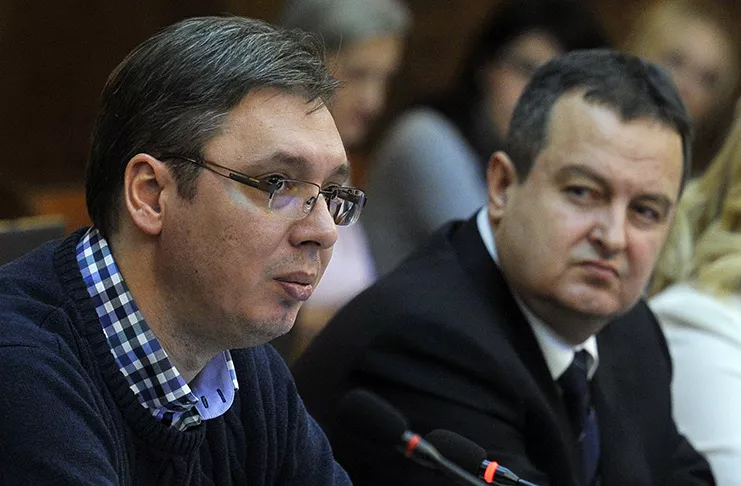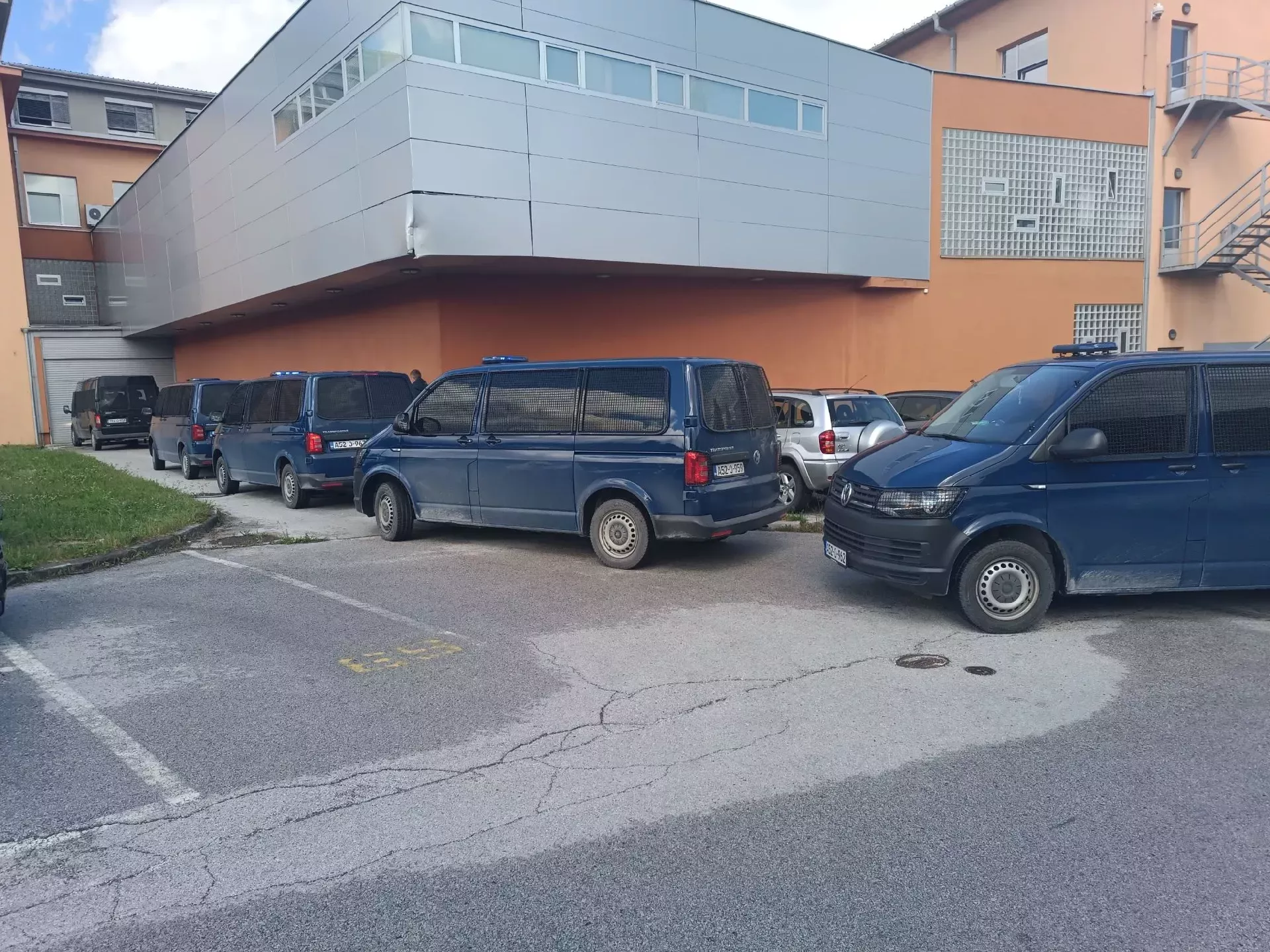



By: Haris LJEVO
The key topic of almost all current political debates in the Balkans is about 'correction' of the borders between Serbia and Kosovo. Such scenario is anticipated by many nationalists who, should such situation occur, would try hard to have their long-standing ambitions met, the same ones they failed to satisfy during the wars in the nineties.
The loudest voices in the border related debates are the ones of Ivica Dacic, Aleksandar Vulin and Milorad Dodik. Aleksandar Vucic also talks about the 'corrections' but not as fiercely as his team members. Vucic has left the nationalistic megaphone to his partners to use.
German Chancellor Angela Merkel has sent a clear message that no corrections of the borders are deemed possible. Her opinions is widely shared among both the local and international intellectuals.
The former high representatives of the international community in BiH, Carl Bildt, Paddy Ashdown and Christian Schwarz-Schilling sent an open letter to Federica Mogherini and the EU countries' foreign ministers, in which they warned about frequent reference to the correction of Serbia – Kosovo borders. The letter says that any re-tailoring of the border would only deepen the existing problems instead of solving them.
As the former high representatives in BiH, we are deeply concerned about the latest announcements by the high officials of the EU which suggest that the EU would be willing to support an agreement between Aleksandar Vucic and Hasim Thaci on exchange of territories between Serbia and Kosovo in form of a 'border correction', the letter says.
The letter asserts that 'although aware that there is no comparison between the Kosovo case and the situation in Bosnia and Herzegovina, we know the Western Balkans well enough to know that such politics could be misused by nationalist politicians for the purpose of destabilizing other countries in the region'.
- We are familiar with BiH well enough to know that such move would serve well those who would gladly dismantle the country, those who are already calling to the return to the status quo in Dayton, thus nullifying all that we have been doing together with our Bosnian partners for over 20 years, the former high representatives warned and added: 'We know the EU and Europe well enough to remember that our principles and bloody history teach us that sustainable peace can be achieved only when we learn to live in multiethnic communities, instead of re-installing borders in order to create mono-ethnic communities. That's why we urge you to reject such proposals as soon as possible, the letter asserts.
Edward Joseph, the Johns Hopkins University professor, thinks that the idea about territory exchange as a possible solution could easily reach its momentum.
- Another question is if Belgrade and Pristina could agree as to specific territories which would be part of the agreement. Also, a very serious question is raised if any negative consequences of such solution for BiH, Macedonia, the Serbs south from Ibar could be prevented. I think that additional engagement of the international community will be required, including Washington, in order to prevent such consequences taking place, explained Edward Joseph.
Josip Juratovic, a delegate of the ruling Social Democratic Party (SPD) in German Bundestag, is also quite concerned.
- If it comes down to re-tailoring the borders, we in Europe may face birth of 40 new states, which will surely cause chaos and conflicts. Exchange of territories means regressing to the medieval times when feudal lords traded territories, forcing people to move against their will. Because somebody will always be unhappy, somebody will always have to move. It would mean another ethnic cleansing in the 21 century, which is an aged theory that has always only caused wars, said Juratovic for DW.
This politician who was born in the former Yugoslavia, implied that Trump's administration seems keen on the concept of territory exchange, while the EU is not united in its stance – other than Chancellor Merkel nobody else has come forth with a clear position. He says that the consequences may spill over to BiH and Macedonia, all the way to Crimea and Pridnjestrovlje.
- Such approach to political solutions would mean a final capitulation of the democratic system that is founded primarily on the society of equal citizens before ever so stronger nationalisms in Europe aimed at building of autocratic societies which surely leads to a new division of Europe and consequently new wars, thinks Juratovic.
The opposition in Kosovo fiercely rejects any idea of exchange of territories. The most influential opposition party, the Democratic Alliance of Kosovo (DSK) said they would not allow any agreements taking place at the cost of 'Kosovo territory', while 'Samoopredjeljenje' announced protests with the same goal.
- Negotiations about Kosovo territory are counter constitutional and whoever may participate in such games will bear constitutional and political responsibility. We will coordinate actions at the parliament so as to prevent president Thaci to compromise the sovereignty of Kosovo as well as its territorial integrity, said DSK.
10 days ago, a group of 20-ish NGOs from Kosovo and Serbia sent an open letter to Federica Mogherini in which they asked of her to unequivocally condemn division of Kosovo in ethnic parts.
Obviously, there are many institutions and individuals who refuse even a reference to the idea about changes and exchanges of territories – those serious folks are deeply aware that the Balkans can change its borders only by means of – wars.
The proposal of border re-tailoring is obviously supported only by those who mourn the failed projects from the nineties.









